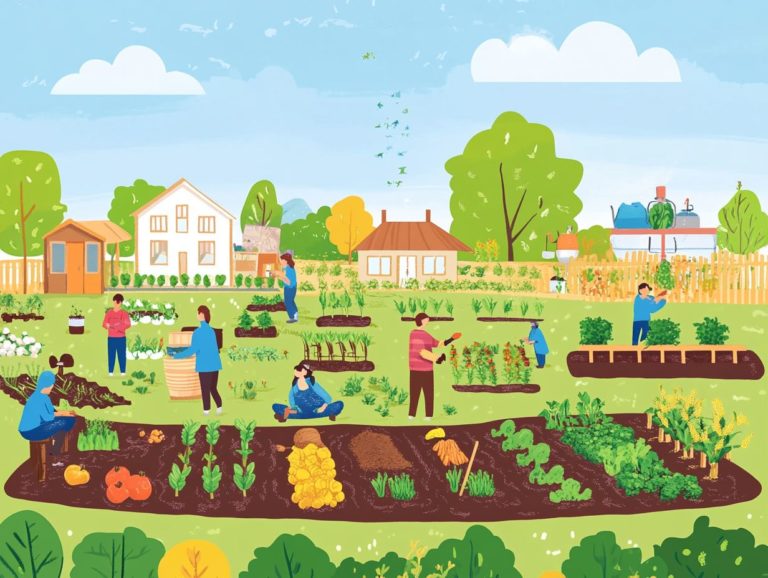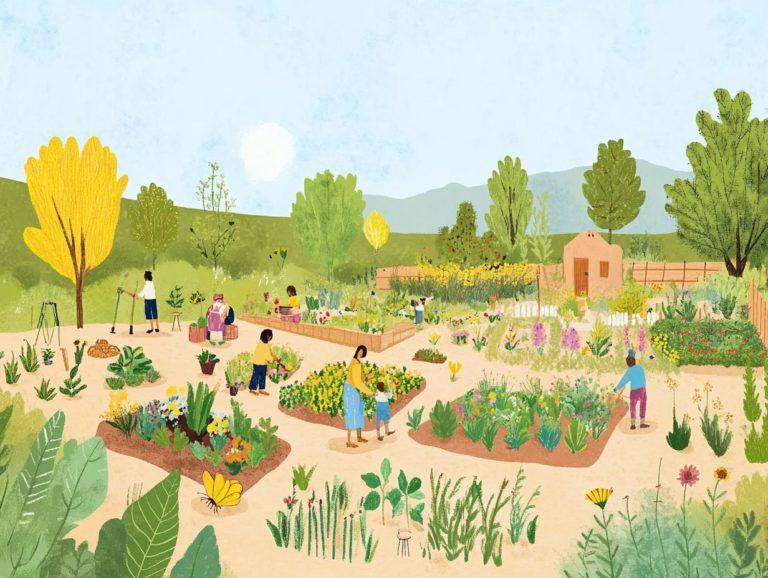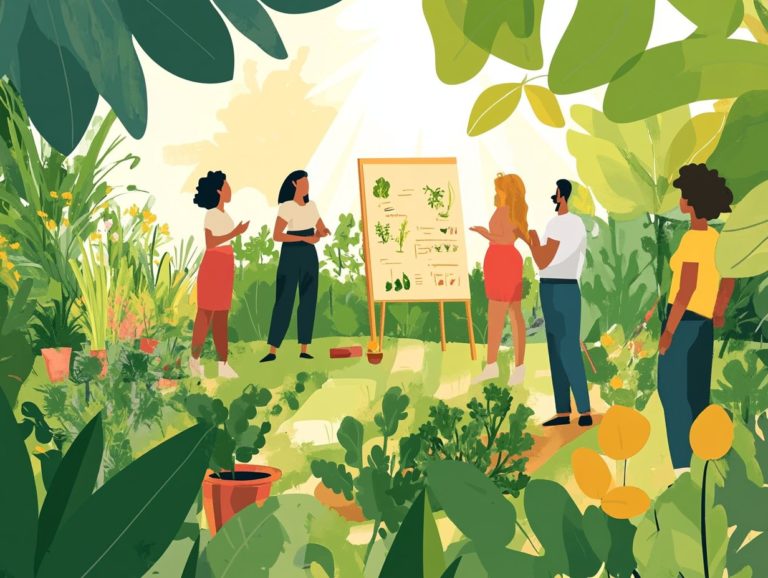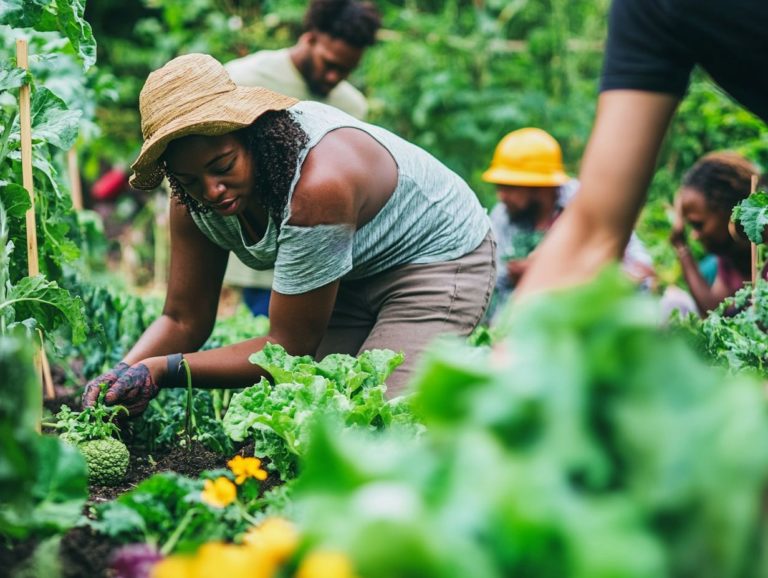78. The Future of Food Sovereignty in Permaculture
Food sovereignty transcends mere buzzword status; it’s a crucial movement championing the right of communities to shape their own food systems. This concept is crucial! It underscores the right of communities to shape their own agricultural systems, embracing ecological methods and sustainable practices that prioritize nutrient-dense foods for everyone. In doing so, it not only addresses food security but also strengthens community relationships.
This article delves into the essence of food sovereignty, uncovering its ties to permaculture principles and the obstacles that emerge when attempting to put these practices into action. You ll also discover the future of food sovereignty within the context of permaculture, exploring its potential environmental impacts and the sustainable solutions it provides. Join us to understand how these concepts connect and why they are vital for communities and our planet.
Contents
- Key Takeaways:
- Understanding Food Sovereignty
- The Role of Permaculture in Food Sovereignty
- Challenges to Food Sovereignty in Permaculture
- The Future of Food Sovereignty in Permaculture
- Impact of Food Sovereignty on the Environment
- Frequently Asked Questions
- What is food sovereignty?
- What is permaculture?
- How does permaculture relate to food sovereignty?
- What are some challenges to food sovereignty in the future?
- How can permaculture help address these challenges?
- What are some ways to support the future of food sovereignty in permaculture and community food systems?
Key Takeaways:
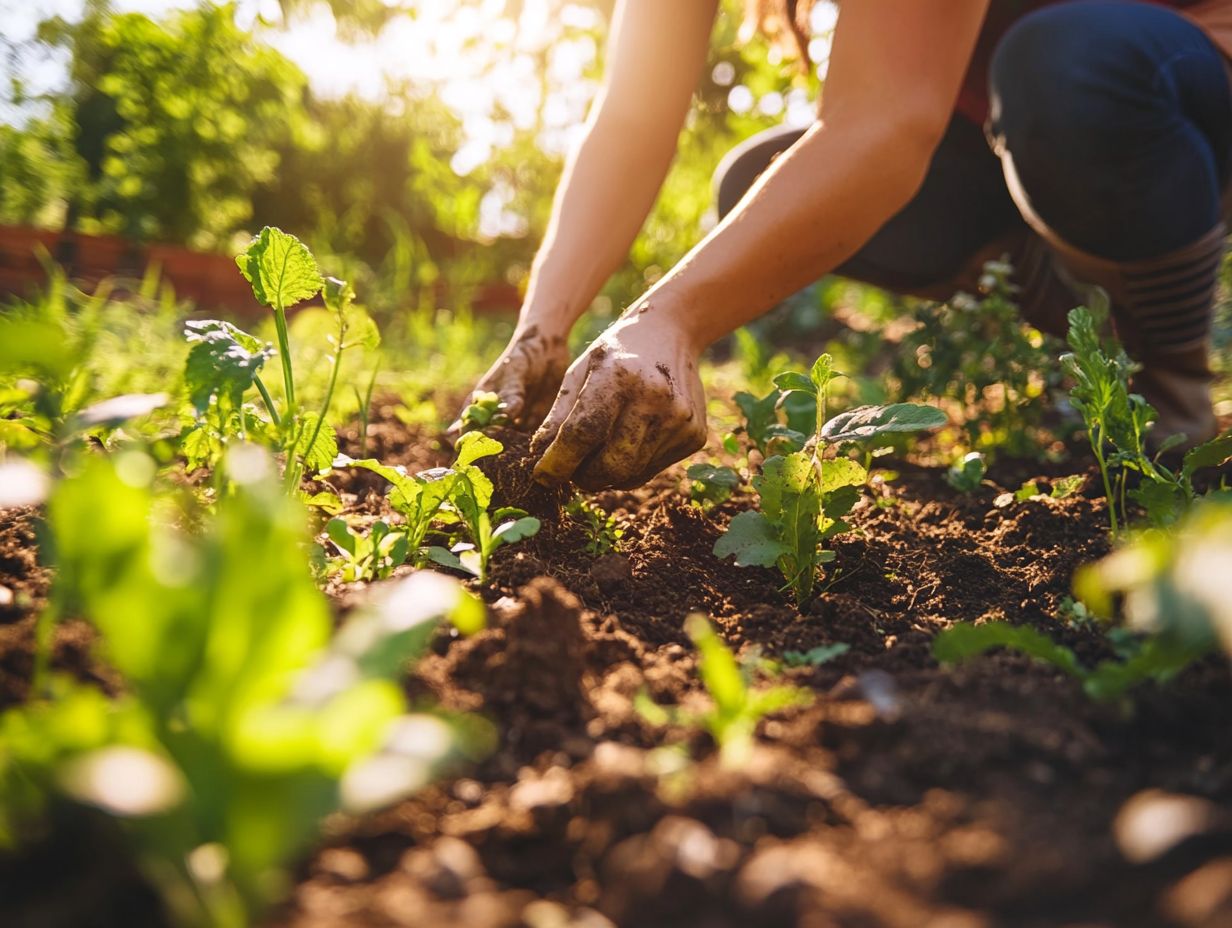
- Food sovereignty in permaculture is about communities having control over their food production and consumption, promoting local and sustainable practices.
- Permaculture principles and practices, such as diversity and working together, are essential for achieving food sovereignty and building resilient food systems.
- The future of food sovereignty in permaculture depends on addressing challenges like access to land and resources and promoting collaborative solutions for a more equitable and sustainable food system.
Understanding Food Sovereignty
Understanding food sovereignty is essential in today s world, where the power dynamics of food distribution frequently marginalize Indigenous peoples and local communities, especially in regions like Haudenosaunee territory.
This movement meets your immediate nourishment needs and nurtures long-term ecological balance! It’s a win-win for you and the planet!
Food sovereignty represents your right to access healthy, culturally appropriate food that is produced through good for the environment and sustainable practices.
This concept, which took shape in the late 20th century, underscores the significance of local food systems and gives the power to communities to make informed decisions about their agricultural practices. Unlike food security, which focuses mainly on ensuring access to adequate food, food sovereignty champions your ability to control the methods of food production. It promotes regenerative farming techniques that enhance soil health and biodiversity.
By prioritizing sustainable agricultural practices, this movement not only meets your immediate nourishment needs but also nurtures long-term ecological balance and cultural integrity. It creates a deeper connection between you and the land you inhabit.
The Role of Permaculture in Food Sovereignty
Permaculture serves as a cornerstone in advancing food sovereignty, seamlessly blending sustainable practices with ecological methods. This approach is meticulously crafted to enhance biodiversity, regenerate soil health, and bolster local food systems, ensuring a resilient and self-sufficient way of living.
Principles and Practices
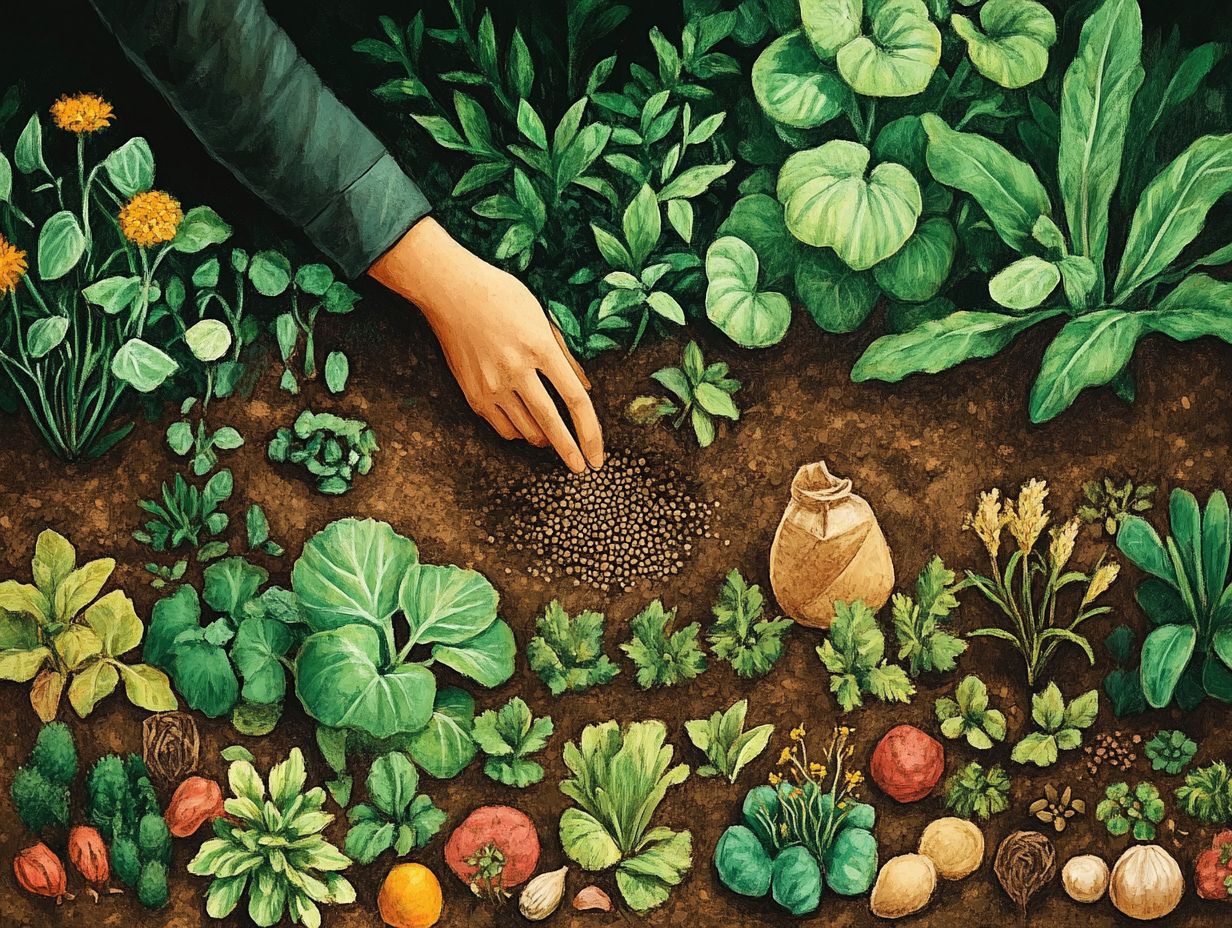
The principles of permaculture highlight the importance of observing nature and crafting agricultural systems that harmonize with ecological methods, ultimately producing resilient and sustainable food sources.
By nurturing diversity within these systems, you can enhance soil health, boost crop yields, and promote biodiversity. This holistic approach goes beyond just the plants; it considers the intricate relationships between organisms, fostering a community that supports ecological balance.
When you implement practices like agroforestry (growing trees alongside crops) and companion planting (growing different plants together to help each other thrive), you significantly bolster local food security, giving the power to communities to thrive sustainably. Ultimately, these principles cultivate a deep respect for the land, instilling a sense of stewardship that resonates with the rhythms of nature and meets the needs of the community.
Challenges to Food Sovereignty in Permaculture
Despite its potential, food sovereignty through permaculture encounters substantial hurdles. Power dynamics often disrupt community relationships and restrict access to resources, particularly affecting marginalized groups like Indigenous peoples and smallholders.
Obstacles and Solutions
Obstacles to achieving food sovereignty often arise from insufficient support for farming methods that restore the land and the necessity of cultivating stronger community relationships to nurture local food systems.
These challenges are further exacerbated by a chronic lack of funding and inadequate policy support. This significantly impedes the adoption of sustainable agricultural techniques. Many grassroots initiatives grapple for resources essential for their survival. Policymakers frequently overlook the critical need to bolster local farmers.
To overcome these barriers, fostering collaborative networks among community members can be transformative. By encouraging local sourcing and promoting education around regenerative practices, you can enhance food security and empower your community to take charge of its food systems.
Through the establishment of strong alliances and advocacy for supportive policies, these initiatives can pave the way for a more resilient food landscape.
The Future of Food Sovereignty in Permaculture
The future of food sovereignty within the realm of permaculture presents exciting possibilities. As communities increasingly embrace sustainable practices, you can prioritize local food systems, enhance biodiversity, and foster ecological resilience.
This movement not only empowers individuals but also strengthens the fabric of your community. It ensures a more sustainable and nourishing future for all.
Predictions and Possibilities
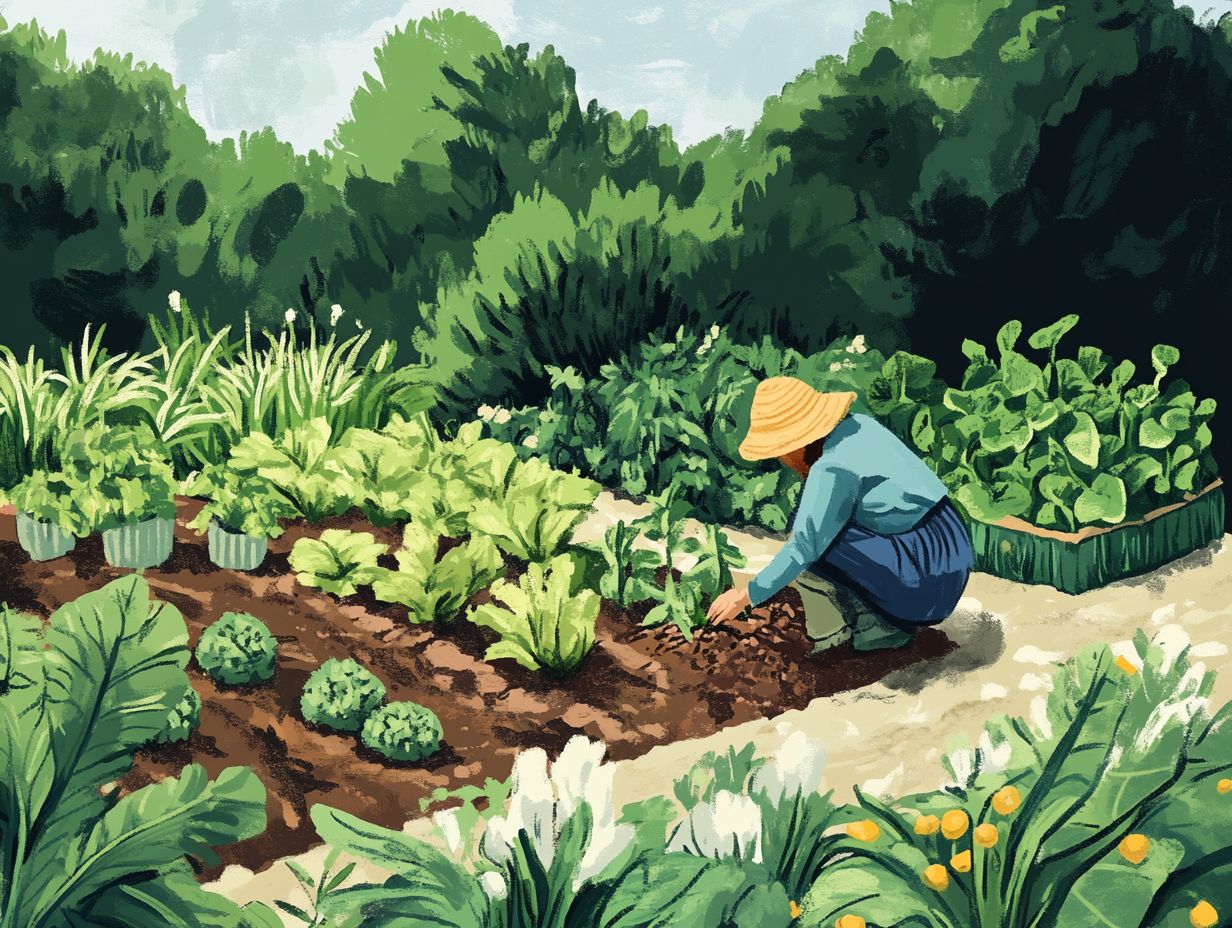
Predictions surrounding food sovereignty reveal an emerging recognition of the vital role that ecological methods play in tackling the climate crisis and enhancing community food resilience.
Communities are increasingly prioritizing sustainable practices that bolster local agriculture and biodiversity. By embracing diversified farming systems and cooperative land practices, these communities boost food production while nurturing ecosystems capable of enduring climate extremes.
Numerous studies indicate that integrating indigenous agricultural techniques can further empower local populations. This provides invaluable insights into sustainable management of resources. As this movement gains momentum, the intersection of food sovereignty and ecological methods is poised to mitigate climate change effects. It ensures that future generations will have consistent access to nutritious food.
Impact of Food Sovereignty on the Environment
Food sovereignty has an incredible impact on our environment! By embracing it, you champion sustainable agricultural practices that enhance biodiversity, improve soil health, and help mitigate the effects of the climate crisis.
Your choices in supporting these practices contribute significantly to a healthier planet.
Sustainable Agriculture and Climate Change
Sustainable agriculture stands as a cornerstone of food sovereignty. It addresses climate change by reducing carbon footprints and enhancing the resilience of agricultural systems.
By embracing diverse cropping systems and organic farming methods, you not only protect ecosystems but also empower communities to reclaim control over their food sources.
When local farmers adopt practices that prioritize ecological balance, it fosters improved soil health and biodiversity. This ultimately bolsters the local economy. These sustainable methods reduce reliance on imported foods, thereby minimizing transportation emissions.
In this intricate web of interdependence, food sovereignty emerges as a vital tool. It enables communities to make informed decisions that prioritize environmental sustainability while simultaneously confronting the challenges posed by climate change.
Frequently Asked Questions
What is food sovereignty?
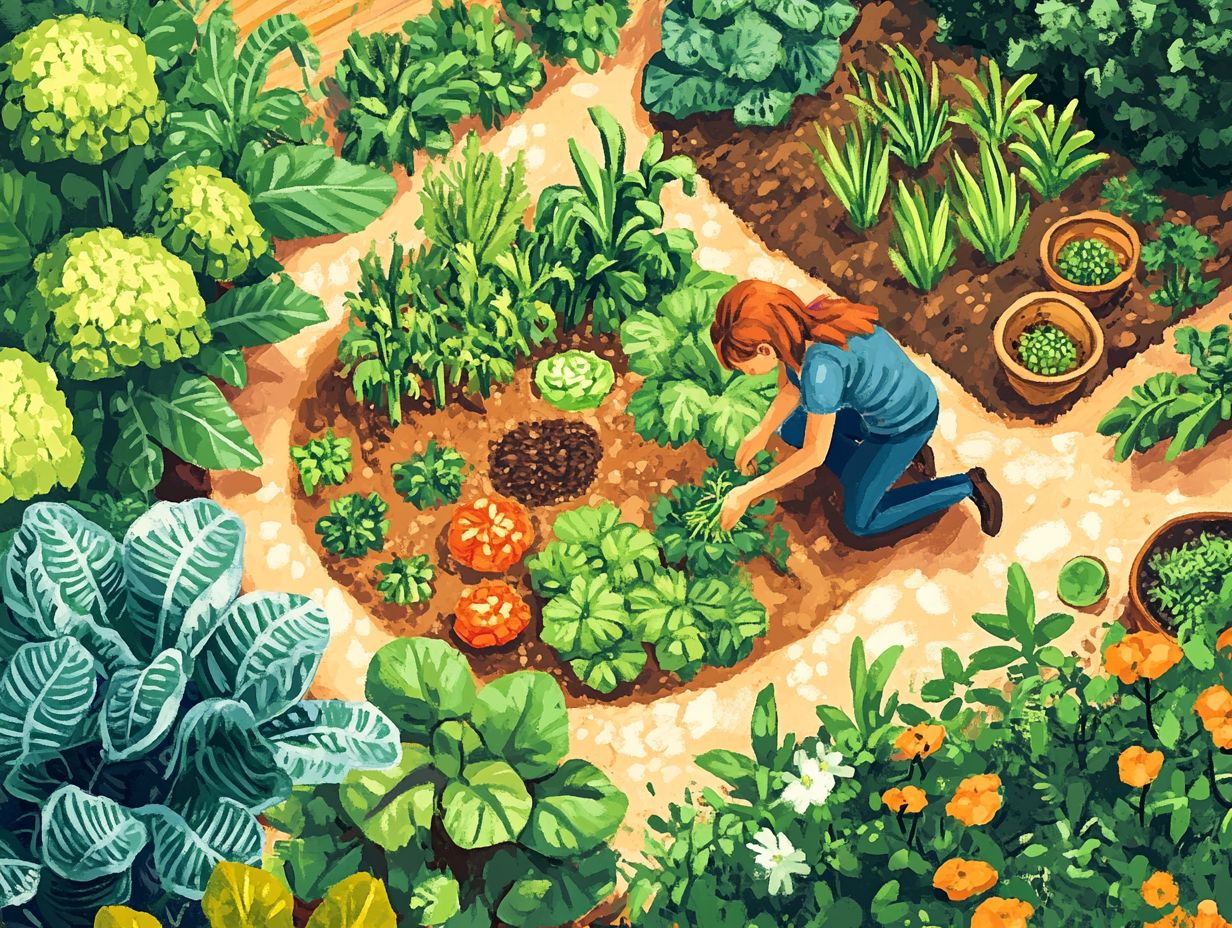
Food sovereignty is the right of people to have access to healthy and culturally appropriate food produced through ecologically sound and sustainable methods.
Join the movement for food sovereignty today! Take the first step by supporting local farmers.
What is permaculture?
Permaculture is a design system that creates sustainable and self-sufficient environments. It does this by mimicking nature’s patterns and systems.
How does permaculture relate to food sovereignty?
Permaculture principles support the goals of food sovereignty. They promote sustainable, local, and community-based food production.
What are some challenges to food sovereignty in the future?
Future challenges to food sovereignty include climate change, loss of biodiversity, and corporate control over the food system.
How can permaculture help address these challenges?
Initiatives like HarvestPlus and partnerships with companies such as General Mills enhance nutrient-rich foods for the future. We must adapt agricultural systems to ensure resilience, especially in regions like the Philippines, Zambia, India, and Kenya.
These efforts are part of broader movements tackling the climate crisis and food distribution power dynamics. Organizations like La Via Campesina and the Naandi Foundation play a vital role in these initiatives.
It’s also essential to include culturally appropriate food practices, which respect local traditions and ingredients, and innovative harvesting techniques to strengthen community ties.
Permaculture promotes diverse and resilient food systems. It encourages regenerative farming practices, reduces reliance on outside inputs, and empowers communities, including Indigenous peoples, to control their food production.
What are some ways to support the future of food sovereignty in permaculture and community food systems?
To support food sovereignty in permaculture, we can educate ourselves about sustainable food practices. Supporting local farmers and advocating for policies that prioritize food sovereignty is crucial.
We should also practice permaculture principles, such as enhancing biodiversity and soil health, in our daily lives.

